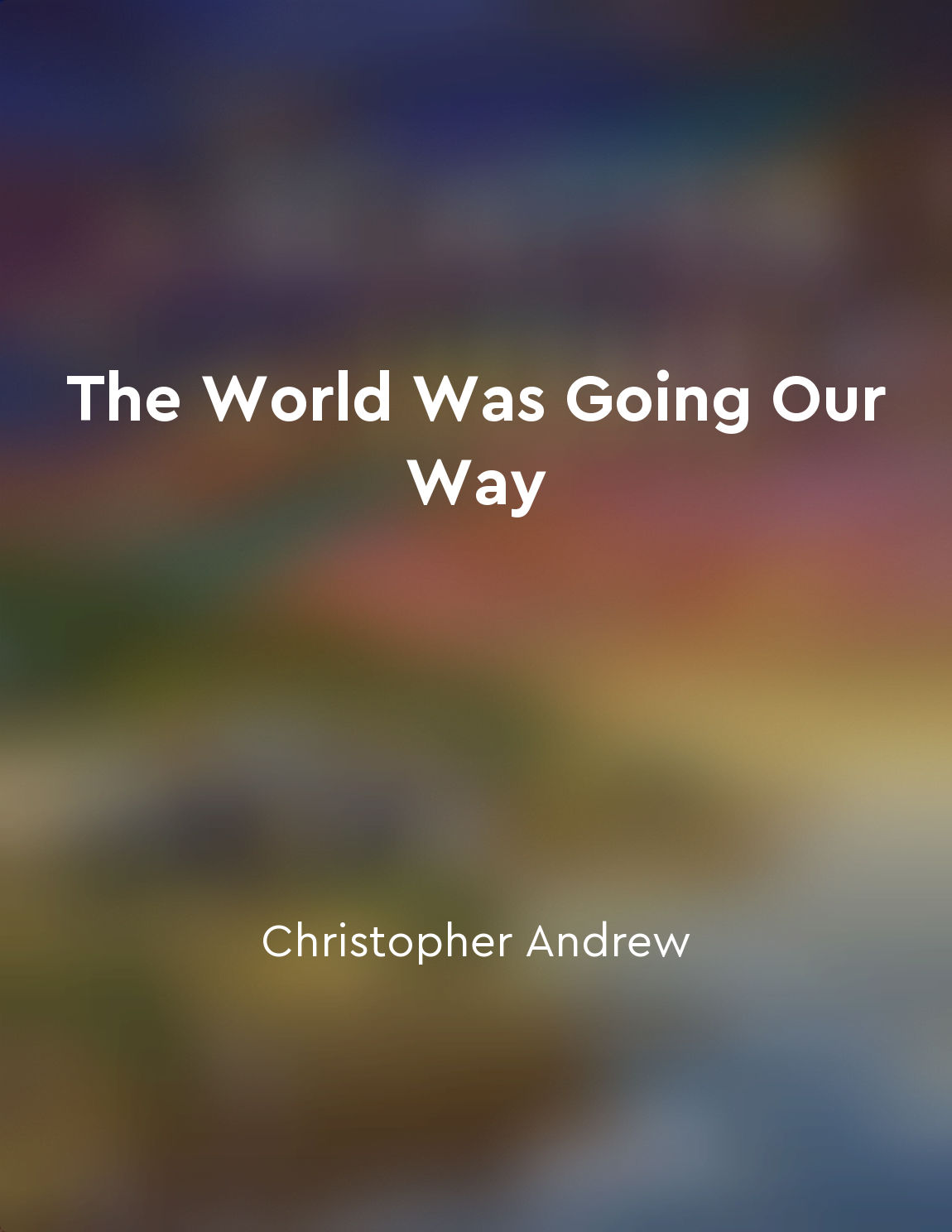Soviet foreign policy objectives from "summary" of The World Was Going Our Way by Christopher Andrew
The Soviet Union's foreign policy objectives were shaped by a combination of ideology, security concerns, and geopolitical strategy. The primary goal of Soviet foreign policy was to spread communism and undermine capitalist powers, especially the United States. This ideological imperative was driven by the belief that communism was the superior socio-political system and that it was inevitable that it would eventually triumph over capitalism. In addition to ideological considerations, the Soviet Union also pursued foreign policy objectives based on security concerns. The Soviet leadership viewed the outside world as a hostile and threatening place, dominated by capitalist powers that sought to encircle and undermine the Soviet Union. As a result, Soviet foreign policy was characterized by a defensive posture aimed at protecting the Soviet Union from potential threats. Geopolitical strategy also played a key role in shaping Soviet foreign policy objectives. The Soviet Union sought to expand its influence and control over strategic regions and resources in order to enhance its security and power. This included supporting communist movements and governments in other countries, as well as engaging in proxy wars and other forms of intervention to advance Soviet interests.- Soviet foreign policy objectives were driven by a complex mix of ideology, security concerns, and geopolitical strategy. The pursuit of these objectives led to the Soviet Union engaging in a wide range of activities, from supporting communist movements around the world to engaging in espionage and covert operations. The ultimate goal of Soviet foreign policy was to advance the interests of the Soviet Union and spread communism on a global scale.
Similar Posts
The end of the Cold War reduced nuclear tensions
The end of the Cold War brought about a significant shift in the global nuclear landscape. The intense rivalry between the Unit...
Fall of the Berlin Wall
The fall of the Berlin Wall in 1989 was a momentous event that symbolized the end of the Cold War and the division of Europe. T...
Trade routes connected distant lands and facilitated the exchange of goods and ideas
The exchange of goods and ideas through trade routes has played a crucial role in the development of civilizations throughout h...
Pandemics reshaped public health policies
The impact of pandemics on public health policies cannot be underestimated. Throughout history, outbreaks of diseases such as t...
The Silk Roads continue to shape the modern world
The threads that weave their way through the pages of history are not static or fixed. They are dynamic and alive, connecting p...
Guatemala coup results in human rights abuses
In 1954, the United States orchestrated a coup in Guatemala, overthrowing President Jacobo Arbenz. This intervention was a resu...


